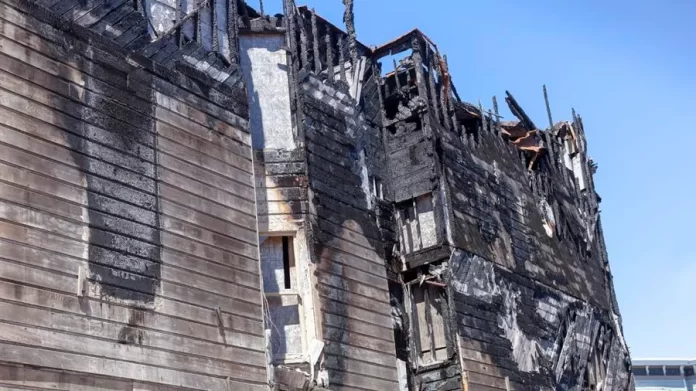Damage to property happens when harm or destruction is caused to someone’s belongings or real estate due to an accident or negligent act committed by another person or entity.
Personal injury cases involving property damage typically arise from car accidents, slips and falls, construction accidents, or other situations. It’s when someone’s property is damaged due to someone else’s fault or negligence.
Table of Contents
Types of Property Damage
Let’s look at some types of property damage.
Vehicle Damage
One of the most common forms of property destruction in personal injury cases is damage to vehicles involved in car accidents. This might range from minor dents and scratches to significant damage resulting in the car’s total loss.
Real Estate Damage
This damage can also extend to real estate, including damage to homes, buildings, fences, or other structures due to accidents like vehicle collisions or construction mishaps.
Personal Belongings
Personal belongings inside a vehicle or property can sometimes be damaged during an accident. This may include laptops, phones, jewelry, or other valuable possessions.
Proving Property Damage
The following elements typically need to be established to seek compensation for property damage in a personal injury case.
Negligence
The injured party must demonstrate that the defendant acted negligently or carelessly, leading to property damage.
Causation
It must be shown that the defendant’s negligence was the direct cause of the property damage. In other words, the injury would not have occurred without the defendant’s actions or inactions.
Quantifiable Loss
The injured must provide evidence of the actual property damage and its value. This could involve repair estimates, receipts, or professional assessments.
What Is the Value of Your Property Damage Claim?
You should be reimbursed for losses caused by someone else when you file a property damage claim. If another driver damages your car, you should be compensated for the value of your vehicle at the time of the accident.
Factors That Can Affect the Amount of Compensation an Individual May Receive
We’ve highlighted some critical factors that can significantly impact the amount of compensation an individual may receive for property damage in a personal injury case. Let’s explore them:
The Extent of the Property Damage
The severity and extent of the property damage play a crucial role in determining the amount of compensation.
Types of Insurance Available
Insurance coverage can significantly affect property damage compensation. The parties involved may have various insurance policies that could cover the damages. For example, in a car accident, the at-fault driver’s liability insurance may cover the property damage to the other party’s vehicle or property.
Fault and Liability
Determining fault and liability is crucial to personal injury cases. If someone else’s negligence or wrongful actions caused the property damage, they may be liable for the compensation. However, if there is shared blame or comparative negligence, the amount of compensation may be adjusted based on each party’s degree of fault.
Evidence and Documentation
The strength of the evidence and documentation supporting the property damage claim can also influence the amount of compensation. Clear and comprehensive evidence, such as photographs, repair estimates, receipts, and witness statements, can strengthen the claim.
Should You Speak with an Attorney About a Property Damage Claim?
Speaking with an attorney if you’re considering filing a property damage claim is a good idea. An experienced lawyer can help you determine your situation’s best course of action and explain all the available legal options.
Final Thoughts on Property Damage
When involved in an accident that results in property damage, it’s essential to understand your rights and the potential for compensation under personal injury law.
A personal injury lawyer with experience can assist you in understanding the legal procedure and guarantee that you receive reasonable compensation for your property damage and related losses.








